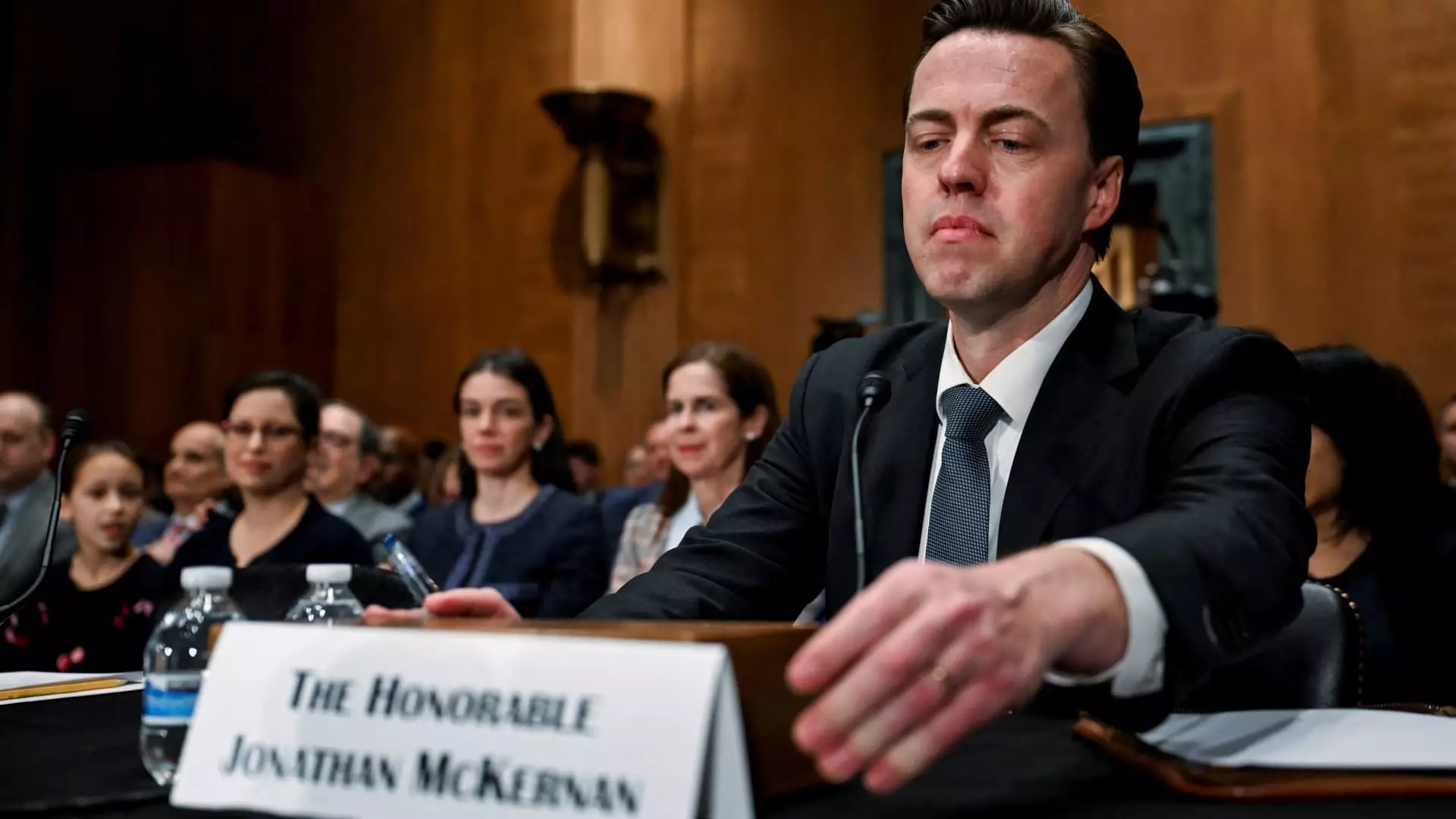The nomination of Jonathan McKernan to lead the Consumer Financial Protection Bureau (CFPB) comes at a precarious time for the agency, especially following a tumultuous period under his predecessor. As President Donald Trump’s pick, McKernan faced intense scrutiny from Senate Democrats, particularly from prominent figures like Elizabeth Warren. The interrogation centered around the future operational integrity of the CFPB and McKernan’s commitment to uphold its statutory responsibilities designed to protect the financial interests of American consumers. This article aims to dissect the implications of McKernan’s nomination, the current political climate surrounding the CFPB, and the overall trajectory of consumer protection in the financial sector.
McKernan’s history, including his legal experience during the 2008 financial crisis, frames his perspective on financial regulation. He expressed a clear commitment to ensuring a regulatory structure that safeguards average citizens from the pitfalls of financial mismanagement. However, his acknowledgment of previous CFPB actions under Rohit Chopra, which he criticized for being overly political and exceeding legal boundaries, raises questions about his approach to consumer protection. While McKernan’s intentions may be aligned with consumer advocacy, the perception of a “crisis of legitimacy” at the CFPB poses serious challenges for his potential effectiveness.
During the confirmation hearing, McKernan emphasized his dedication to the law and the statutory requirements that govern the CFPB, including the need for consumer complaint channels and support for vulnerable groups. Yet, the stark realities of the Trump administration’s approach, which hints at a desire to dismantle the agency, casts a shadow over his assurances. Warren’s pointed comments underscored the disconnect between McKernan’s assurances and the administration’s tactical moves, including significant staff reductions and halted lawsuits against major banking institutions accused of predatory practices.
The notion of “right-sizing” the CFPB, as McKernan articulated, suggests an alignment with the administration’s rationale for limiting the agency’s reach. This presents a troubling paradox for those who advocate for consumer protections, as it poses the risk of undermining the very mission of the CFPB amidst pressures to streamline its operations.
The state of the CFPB, especially in light of the recent purging of staff and the closing of its headquarters, leads to critical discussions regarding its future efficacy. McKernan’s commitment to enforce consumer protection laws is admirable, but the real-world feasibility of carrying out these promises remains suspect. The firing of nearly 200 employees and the dismissal of enforcement lawsuits against powerful financial entities has already created an air of uncertainty about the agency’s dedication to its core functions.
As the CFPB faces existential threats, questions arise about whether it can continue to fulfill its mission without the necessary resources, staff, and political backing. The concerns voiced by senators like Jack Reed emphasize that a lack of presidential support may place McKernan in a compromising position, echoing the broader tensions within the political landscape regarding consumer financial protections.
The nomination of Jonathan McKernan represents a critical inflection point for the CFPB and consumer financial protections at large. While his legal expertise and commitment to consumer advocacy are commendable, systemic challenges stemming from the current administration’s strategies deepen the skepticism surrounding his potential effectiveness. The CFPB, an agency designed to safeguard the interests of consumers, now faces the threat of significant structural changes that could undermine its foundational purpose. The path forward necessitates a reassessment of the agency’s role in providing oversight within the financial sector, alongside a collective effort to ensure that consumer rights remain a priority in an increasingly complex political and economic landscape. The future of the CFPB hinges on its ability to navigate these turbulent waters while maintaining a steadfast commitment to consumer protection.

